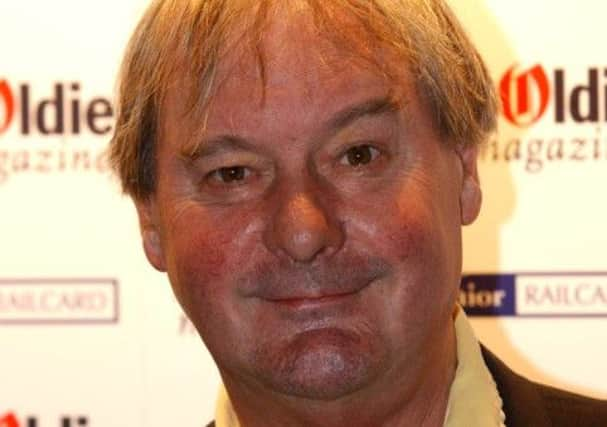Obituary: John Fortune, comedian


With his rubbery face and gentlemanly manner John Fortune seemed to be a conventional, reliable and very straightforward authority figure. Those qualities he put to excellent use in the creation of some of the most biting satirical characters on television. His emergence as a satirist of real class began when he was a member of the Cambridge Footlights which visited the Edinburgh Fringe in the early 1960s and then he became nationally known in the outstanding Bremner, Bird and Fortune programmes on BBC Television. He had a fine ability to mimic upper-class politicians, civil servants and retired army majors.
Such qualities of controlled mimicry were vital in Fortune’s definitive establishment figure – John Parr – which he performed with John Bird on television. Bluff and loquacious, Parr seldom answered a question directly but was an expert at blustering his way through with some sort of gloriously vague answer.
Advertisement
Hide AdAdvertisement
Hide AdIn fact, Fortune, the lankier of the two, whose legs filled most of the leather chair in the studio, took it in turns with Bird to play the interviewee and the interviewer. In fact, it was rehearsed precisely (especially for legal reasons) but the two went off script with joyful abandon. Viewers could tell that some of Fortune’s replies were unexpected and Bird had to think on his feet and fight back the giggles.
Fortune’s performance as Parr was cool, calculated and always plausible. There was an air of dominant authority about his manner and answers that was convincing. As the interviewer, he asked his questions in an off-hand, insouciant manner.
In the classic 2008 sketch about bankers Fortune opens proceedings by asking: “Now, Mr Parr, you are…” then spitting out the rest of the sentence, “an investment banker.”
John Fortune (born John Wood) was educated at Bristol Cathedral School and then read English at King’s College, Cambridge. It was at Cambridge that his genius for satire burst forth and, significantly, he met John Bird. The pair became known as “the Two Johns” or “The Long Johns” and came to the Edinburgh Fringe with the Footlights in the early 1960s.
In 1962 Peter Cook opened The Establishment Club in Soho and the satire boom took off. The sketches lampooned the government mercilessly – especially Prime Minister Harold Macmillan and the Foreign Secretary Alec Douglas-Home. Even the bounds of blasphemy were tested when Fortune (as Christ) was in a sketch about the crucifixion. Fortune also supported the then unknown Barry Humphries in the British debut of his Edna Everage show.
The Establishment broke new ground with Cook, Fortune, Alan Bennett, Jonathan Miller and others performing upstairs and Dudley Moore downstairs on the piano. They were heady evenings and Fortune became very much part of the Swinging Sixties.
Fortune was also seen in various television dramas – invariably playing authority figures in the likes of Crown Court, a school master in The Good Guys. The director Ned Sherrin invited Fortune to join Not So Much a Programme, More a Way of Life on BBCTV.
Other television programmes on which he was seen included Yes Minister, First Among Equals and The Late Show. His films included Trust Me I’m the Prime Minister, Beyond Iraq and a Hard Place and Calendar Girls.
Advertisement
Hide AdAdvertisement
Hide AdHe made two appearances on stage plays. In 1984 Fortune joined Paul Eddington in the Chichester Festival production of Allan Bennett’s Forty Years On and in 1988 he was at the Old Vic in London with Bird, Graham Crowden in NF Simpson’s One Way Pendulum.
In 2003 Fortune joined Bird and Fortune for a stage version of the TV show. It was nominated for an Olivier Award.
It is that series for which he shall be rightly remembered. The three first teamed up in 1993 and although the format changed, their biting wit and satirical powers never changed.
Their humour was never malicious or snide. The mere fact that George Parr came across as being so reasonable in the hands of Fortune or Bird made the character all too credible and recognisable.
The interview about bankers is now a classic and Bird’s explanation (and Fortunes incredulous reactions) about sub prime rates are examples of magnificently controlled farce. The question on bonuses gets a deadpan reply: “No price is too high for such financial wisdom.”
Rory Bremner commented yesterday: “Lovely man, dear friend, brilliant and fearless satirist.”
He is survived by his wife, Emma and three children.
ALASDAIR STEVEN